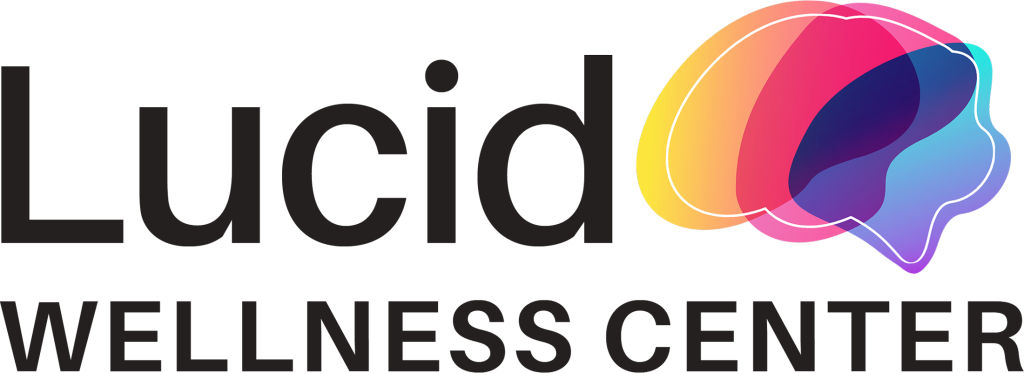TMS for PTSD
TMS and PTSD
PTSD can occur in anyone. This mental disorder is not simply an emotional response to the trauma, but rather a series of changes in brain function that can cause anxiety, depression, and other symptoms.
Fortunately, with proper diagnosis and treatment, people can recover from PTSD. Therapy, medication, or a combination of both can provide relief from the distressing symptoms. One such treatment that shows great promise is transcranial magnetic stimulation (TMS).
TMS is a non-invasive procedure that uses magnetic fields to stimulate nerve cells in the brain. It has been shown to improve communication between different areas of the brain, which may help alleviate the symptoms of PTSD. It is a safe and effective option for those who struggle with the debilitating effects of this condition.
What Is PTSD?
Post-traumatic stress disorder is a mental health condition that can develop after experiencing a traumatic event that threatens your life or causes you to fear for your life or the life of another person. Post-traumatic stress disorder is a mental health condition that can develop after experiencing a traumatic event that threatens your life or causes you to fear for your life or the life of another person. People with post-traumatic stress disorder may experience nightmares, have a difficult time sleeping, have trouble concentrating, feel depressed or anxious, and have physical symptoms like sweating or a racing heartbeat. These symptoms can interfere with daily life and relationships.

Symptoms of PTSD
- Nightmares – Nightmares are a very common symptom of PTSD. A person with this disorder may have difficulty falling asleep and will often experience nightmares when they do fall asleep. These nightmares are very realistic, and they can bring back the same emotions that the individual felt at the time of their trauma. Nightmares can cause extreme panic and can lead to insomnia. Insomnia is when a person cannot fall asleep, stay asleep, or wake up too early.
- Flashbacks – People with PTSD often experience flashbacks, which are like a re-living of the traumatic event. These flashbacks can be triggered by a sound, an image, or even a word. When experiencing a flashback, the individual may seem like they are somewhere else, unable to respond to the people around them. People with PTSD often experience flashbacks at a certain time of day (such as at night), or in certain situations that remind them of their trauma.
- Anxiety – Anxiety is a feeling of nervousness and fear, often accompanied by physical symptoms like an increased heart rate, difficulty concentrating, sweating, or nausea. An overwhelming feeling of anxiety can impact many areas of a person’s life, including their relationships, work, and personal goals.
- Difficulty sleeping – Nightmares, flashbacks, and anxiety are all common symptoms of PTSD that can interfere with a person’s ability to sleep. Even if you were able to sleep before experiencing a traumatic event, you may find that you now have difficulty falling asleep or staying asleep.
- Difficulty controlling emotions – Many people with PTSD are unable to control their emotions. They may cry easily, be angry or irritable, or unable to relax.
- Feeling disconnected from others – Many people with PTSD feel disconnected from others. This can make it difficult to form relationships with friends, family, and co-workers. People with PTSD may feel like they don’t fit in and may be ashamed of their condition. They may not want to tell others about their condition because they feel like they’re different.
Causes of PTSD
Experiencing a traumatic event – Any event that makes you feel threatened or like you’re in danger can cause PTSD. This can include sexual or physical assault, a car accident, or a natural disaster. It is not uncommon for people who work in the emergency field like firefighters and paramedics. This happens because they are exposed to traumatic events regularly.
Feeling responsible for the trauma – Sometimes people will develop PTSD even if they were not actually present at the traumatic event. For example, if you were kidnapped and held captive but were able to escape unharmed, you may still develop PTSD. This can occur if you feel responsible for what happened to the other people who were kidnapped.
Having low self-esteem – If you have low self-esteem, you may be more likely to develop PTSD. Having low self-esteem means that you have a negative view of yourself and your abilities. This can make it difficult to cope with challenging circumstances.
Having a family history of mental illness – If a close family member has PTSD or another type of mental illness, you are more likely to develop this disorder as well.
What Are the Different Types of PTSD?
Post-traumatic stress disorder is a mental health condition that can develop after experiencing a traumatic event that threatens your life or causes you to fear for your life or the life of another person. People with PTSD may experience nightmares, flashbacks, and anxiety that can interfere with daily life. There are several ways you can help someone with PTSD, including being patient, non-judgmental, and open to therapy. There are three types of PTSD, including acute, delayed, and PTSD with comorbidity.
- Acute PTSD – Acute PTSD is a short-term response to a traumatic event. Acute PTSD can last for up to one month, and it is common in people who experience a traumatic event.
- Delayed PTSD – Delayed PTSD is when symptoms of PTSD occur weeks or months after the traumatic event. Delayed PTSD is common in people who have experienced childhood trauma.
- PTSD with comorbidity – PTSD can occur with other mental illnesses like depression or anxiety. This is known as PTSD with comorbidity.
How to Help Someone With Post Traumatic Stress Disorder (PTSD)
- Be patient – People with PTSD need more time to process situations than other people. It can take them longer to respond in conversations, and they may need more time to complete tasks. It can also take them longer to feel comfortable in new situations.
- Be supportive – Let the person with PTSD know that you care and that they are not alone. Let them know that they don’t need to pretend that they’re fine when they’re not. Let them know that you are there for them and that you want to help. Try to avoid arguing or criticizing the person with PTSD.
- Try not to judge – Avoid being critical or judgmental of the person with PTSD. They are dealing with a difficult condition, and judgment from others only makes the symptoms worse.
- Be open to therapy – If you are close to someone with PTSD, you may benefit from seeing a therapist as well. You may find that therapy can help you understand your loved one’s condition and come up with ways to support them.
- Recommend TMS for PTSD – Many patients experience relief when they treat PTSD with combined exposure therapy and brain stimulation therapies like transcranial magnetic stimulation, especially when they are suffering from co-existing mental disorders like obsessive-compulsive disorder or major depressive disorder.

Treatment for PTSD
If you have experienced trauma or feel as if your depression may be linked to your past, it is important to speak with a mental health professional. They can help you to evaluate your situation and determine the best way to move forward with treatment. Choosing the right therapist is an important part of your journey. The best way to find one that is right for you is to do your research and ask around. For many people, TMS therapy, also known as transcranial magnetic stimulation, can alleviate the symptoms of post-traumatic stress disorder (PTSD) as well as associated anxiety disorders and major depressive disorder, which arise due to prolonged psychological distress.
What is TMS Therapy?
TMS therapy is a treatment in which magnetic pulses are applied to the brain in order to reduce symptoms of anxiety, depression, and other mental health conditions. It is related to electroconvulsive therapy (ECT), except that it uses high-frequency stimulation and magnetic pulses instead of electrical pulses. TMS is considered a safe and effective treatment for a wide range of mental health conditions, including post-traumatic stress disorder (PTSD). While more commonly used in treating major depressive disorder, recent studies have shown that transcranial magnetic stimulation, also known as TMS therapy, can also help treat PTSD. In TMS therapy, a magnetic coil is placed against the person’s head. The coil is then activated to produce an electrical field that penetrates inside the brain. The electrical field causes neurons to fire inside the brain, but only on the side where the coil is placed. The electrical field does not extend beyond the cranium, so it does not cause neurons on the other side of the brain to fire.
How Does Transcranial Magnetic Stimulation Help with PTSD?
According to the National Center for PTSD, research suggests that PTSD is an abnormal reaction to a traumatic event that triggers changes in how a person thinks and behaves. This can lead to symptoms like flashbacks, nightmares, and poor sleep, as well as hypervigilance and emotional numbness. TMS treatment can help ease the symptoms of PTSD. By applying electromagnetic pulses to targeted areas of the brain, patients are able to reduce symptoms of depression and PTSD. This happens because the electromagnetic pulses are able to activate areas of the brain that are underactive in PTSD patients. By increasing activity in areas of the brain related to regulating emotions, TMS treatment is able to help patients reduce symptoms of PTSD, including flashbacks and nightmares.
What is Trauma?
A trauma is any event that causes distress and leads to psychological damage. This can happen in any childhood, and most people will experience one during their lifetime. The most common types of trauma include sexual abuse, physical abuse, emotional abuse, neglect, bullying, natural disasters, accidents, or health conditions like cancer, to name a few. If a child is exposed to trauma, especially at a young age, their brain may not have developed enough to process the event in a normal way. This means that the child might have trouble understanding what happened, feel confused about their emotions, or feel like they have no control over the situation.

Why Trauma Can Lead to Depression
When a person experiences trauma, their mind and body enters fight-or-flight mode. This is a survival mechanism that has been around since prehistoric times. It allows people to quickly react to dangerous situations and use energy to get themselves out of harm’s way. When this happens, the body releases hormones like adrenaline and cortisol. This process is fine for a few days, but when it gets triggered on a regular basis it can lead to serious health issues. When people have a traumatic event in their life, their brain might experience an abnormal reaction to it. This is known as post-traumatic stress disorder (PTSD). People with PTSD have an overactive fight-or-flight response even when there is no danger, which leads to a variety of issues.
How Trauma Affects the Brain
A traumatic event can trigger a dangerous chemical reaction in the brain that disrupts the function of neurotransmitters – the chemicals that control your emotions and thoughts. This can lead to many consequences, including depression. When a person experiences trauma, their brain might go into survival mode and release chemicals that disrupt mood regulation. This can lead to depression, anxiety, intense feelings of fear, low self-esteem, and other mental health issues. Researchers have found that people who experience PTSD also have an altered brain structure. The amygdala, which is an area in the brain that controls emotions, is smaller in people with PTSD. This means that these individuals have fewer emotions and may find it difficult to experience positive feelings.
Warning Signs of Depression After Trauma
- Having negative thoughts about yourself and the world
- Feeling guilt about things you have done or the things you have failed to do
- Experiencing intense feelings of anxiety or panic
- Avoiding situations that might trigger memories from the traumatic event
- Experiencing physical symptoms, such as headaches, stomachaches, or muscle pain
- Losing interest in activities you used to enjoy
- Having a significant reduction in energy levels and feeling tired
- Sleeping longer than usual
- Eating more or less than usual
- Having negative thoughts about ending your life
- Engaging in substance abuse
TMS Therapy for Major Depressive Disorder
Transcranial magnetic stimulation therapy (TMS) is a non-invasive treatment option for major depressive disorder. It is approved by the FDA for this use and is considered to be a safe and effective treatment. TMS is a form of electroconvulsive therapy (ECT) that uses electromagnetic pulses to stimulate an area of the brain. This can help correct neurotransmitter imbalances that occur in people with major depressive disorder. The therapy is quick and only requires a few sessions. Side effects are minimal, and most people are able to continue with their normal lives while receiving treatment.
How TMS Helps With Depression in PTSD
One of the symptoms of PTSD is depression. Depression can negatively impact an individual’s ability to cope with the symptoms of PTSD. Similarly, PTSD can worsen the symptoms of depression, such as feelings of sadness, hopelessness, and worthlessness. Treatment-resistant depression is another common result of PTSD mood symptoms. By targeting areas of the brain related to depression, TMS for PTSD is able to ease the burden of depression in patients who are recovering from a traumatic experience. In clinical studies, transcranial magnetic stimulation helped people with both PTSD symptoms and depressive symptoms. These patients experienced significant improvements after only a few weeks of deep transcranial magnetic stimulation.

Benefits of TMS for Anxiety in PTSD Patients
Not only does TMS treatment ease symptoms of depression and PTSD, but it also helps with anxiety. Generalized anxiety disorder, as well as other mental health disorders, can be a symptom of PTSD, as well as a result of it. By targeting areas of the brain related to anxiety, TMS treatment is able to ease the burden of anxiety in PTSD patients. TMS treatment is also able to help with PTSD-related nightmares. Nightmares are another common symptom of PTSD that can exacerbate the condition. By targeting areas of the brain related to nightmares, TMS treatment is able to ease the burden of nightmares in PTSD patients. TMS treatment is also able to help with PTSD-related hypervigilance. Hypervigilance is another common symptom of PTSD that can exacerbate the condition. By targeting areas of the brain related to hypervigilance, TMS treatment is able to ease the burden of hypervigilance in PTSD patients.
TMS therapy is an FDA-approved treatment.
Can TMS be Used to Treat Nightmares in PTSD?
TMS treatment is able to help with nightmares that result from PTSD. Nightmares are a very common symptom of PTSD. They can range from frightening but not realistic images to realistic images that feel like they are happening in real life. TMS treatment can also help with PTSD-related flashbacks. Flashbacks are another common symptom of PTSD that is defined as re-experiencing a traumatic event as if it were happening again. A person experiencing a flashback may be unaware that what they are experiencing is not real. TMS treatment can also ease the burden of other common PTSD symptoms, such as hyperarousal and emotional numbing. By targeting areas of the brain related to hyperarousal, TMS treatment can ease the excessive arousal that many PTSD patients experience.

Should You Try TMS for PTSD?
TMS treatment is effective in easing the symptoms of PTSD. It can help with depression and anxiety, as well as nightmares and flashbacks caused by PTSD. TMS treatment can also ease hypervigilance and emotional numbness, two other common symptoms of PTSD. TMS treatment is a helpful and effective treatment for the symptoms of PTSD. It can help people who suffer from PTSD reduce their symptoms and regain control of their lives. If you suffer from PTSD, you should consider TMS treatment as a treatment option.
TMS was originally used as a treatment for depression. There is now an enormous body of research showing TMS therapy’s efficacy in the treatment of all types of depression. During a TMS session geared toward treating depression, TMS pulses are directed toward the areas of the brain most affected by depressive symptoms. TMS therapy works by altering the neuronal activity and the synaptic connections in the brain – especially in the prefrontal cortex, the area of the brain responsible for high level cognition and decision-making. During a DMS session, magnetic pulses lead to increased activity in this area of the brain. At Lucid, clients with depression receive TMS treatment specifically designed to eliminate symptoms, and the vast majority benefit from complete remission of symptoms.
In recent years, scientists have discovered that TMS therapy can help people who are trying to stay off of drugs and alcohol. One study conducted in 2018 showed that magnetic stimulation leads to a reduction in neuronal firing when a person is confronted with a drug-related trigger or cue. The study demonstrated that people receiving TMS therapy are less likely to relapse on cocaine, alcohol, and other addictive substances.
Recreational drugs are not the only addictions that TMS can help with. Individuals who are trying to quit smoking may get the relief they need simply by going to a few treatment sessions. Recent research shows that people going in for TMS therapy are at a lower risk of relapse, stay off cigarettes longer, and are also more likely to engage successfully in other treatment approaches.
Bipolar disorder is a mental health condition that a person has for life. However, while it is not curable, it is possible to live with bipolar disorder without disruptive symptoms. TMS therapy makes bipolar disorder for more manageable by treating the condition’s symptoms. During bipolar disorder treatment with TMS, magnetic pulses focus on areas of the brain most directly affected by bipolar disorder. As with depression treatment, the magnetic pulses also target the prefrontal cortex of the brain. This level of stimulation increases mood stability and helps clients regulate their thoughts and emotions. As a result, clients with bipolar disorder can live joyful and fulfilling lives.
When it comes to OCD, the most popular treatment options remain behavioral therapies as well as prescription drugs. However, more than two fifths of people with OCD who use this common treatment interventions still experience disruptive symptoms. TMS therapy can be extremely beneficial for these cases. It is also approved by the FDA as a treatment for OCD. When a person with OCD goes in for treatment, the magnetic impulses aim for the areas of the brain that control OCD symptoms.
TMS treatment is one of the safest and most effective approaches to reducing the frequency and intensity of migraines. Migraines are literally caused by dysfunctional brain activity. During TMS treatment, magnetic impulses target the areas of the brain most associated with migraines. These areas include the occipital cortex of the brain. Migraines are partially caused by brain activity that is too high in these areas. The magnetic pulses that occur during TMS treatment reduce this overactivity. After even a single session, many clients report a dramatic drop in migraine frequency – and the vast majority find that the symptoms and pain levels are far more manageable.
Peripartum depression is an extremely common condition that many people find too taboo to discuss, despite how common it is. It is a type of depression that occurs while a person is pregnant. However, it can also be diagnosed during the first year after childbirth. Many new mothers, pregnant mothers, or nursing mothers are reluctant to take prescription drugs that may affect their child. TMS therapy is FDA-approved, non-invasive, and extremely safe. As an intervention for perinatal depression, it stands above other options. Transcranial magnetic stimulation at Lucid in Los Angeles, CA can help mothers at any stage get relief from their depressive symptoms, allowing them to focus on their lives and their families.
Borderline personality disorder is a condition that is often very difficult to treat. Left untreated, however, it can make it very difficult for a person to sustain relationships or live healthy and fulfilling lives. One study in 2017 showed that TMS can help people with borderline personality disorder by decreasing their rate of self-harm and suicidal ideation. As a side effect, patients with borderline personality disorder who received TMS therapy also found that their behavior in social situations improved. The stronger interpersonal relationships and improved social functioning immediately led to a better quality of life for these patients.
Alzheimer’s Disease can be one of the most painful conditions – for the person diagnosed with it as much as their family members. At Lucid’s treatment center in Los Angeles, California, we use TMS therapy to help individuals who are at any stage of this debilitating brain condition. TMS treatment for Alzheimer’s can help patients get relief from symptoms. Studies show that it may significantly reduce the symptoms of mild Alzheimer’s and even slow down the progression of the disease.
Memory loss, which is distinct from dementia and Alzheimer’s Disease, is often simply part of getting older. That doesn’t mean that it’s inevitable, though, or that it can’t be treated. While memory loss to some degree will happen no matter what as a person gets older, TMS can be used to dramatically reduce the rate of memory loss. It can also prevent this condition from getting more severe. Lucid is one of Los Angeles’ top treatment centers for TMS therapy for memory loss.
TMS therapy can be helpful for individuals who do not have debilitating conditions as well. The many benefits of this therapeutic modality can help individuals achieve peak performance in any number of areas, including cognitive performance, mood, and concentration. Why reach for coffee when you can improve how your brain functions on the neurological level? TMS peak performance treatment at Lucid is most helpful, for individuals who have mild anxiety, mild depression, or those who are reluctant to take prescription drugs – or who have found prescription drugs ineffective.
Schedule your free consultation today.
Treatments are fast and can be done on your lunch break with same day and next day appointments available to fit your busy schedule.
Click here to fill out the new client form and we will call you to schedule an initial consultation or next appointment for TMS therapy at our Los Angeles clinic. You can also reach us sooner by calling (323) 792-2071.


